 |
| |
   |
 |
Power of Local Youth: Transparent, Open Civil Participation Transforms Yuanli |
| |
In December 2022, after winning the Youth Action Award of the first Community Empowerment Awards organized by the Ministry of Culture, Yu-Yu Liu was elected the Mayor of Yuanli Township and was sworn into office. For the past ten years after returning to her hometown, Liu has been participating in activism and public affairs. She further takes on public office to reform the political atmosphere. Her journey is indeed an exemplification of the power of youth actions.
In 2013, Yuanli Township was in the center of a controversy stemming from inadequate consideration in the selection of wind turbine location at the coastal areas (Yuangang, Xiping, Hai’an, and Fangli). Liu headed out from Taipei to take part in the Anti-Crazy Windmills Operation in Yuanli. She joined the community and formed a women’s choir group to participate in public affairs in her hometown. Meanwhile, she had also focused her attention on women and youth issues. Her participation was a testament to the contribution of female youth activists.
Liu and Shiou-Fan Lin, her partner in Anti-Crazy Operation, founded “Yuanli Say Hi Home” in 2014, whose endeavor includes rush weaving, field research on the rush industry, and publication of the Hi Home Brochure. They were also involved in the registration and preservation of late musician Chih-Yuan Kuo’s artifacts. Furthermore, they also spearheaded the Hi Home Festival that has since become an attraction. Over the years, Liu uses concrete actions to answer the call for returning to rural areas. From community building to mayorship, Liu is the new role model for youth participation in public affairs of rural areas.
Activism sets off intention to return to rural areas
Yu-Yu Liu comes from Fangli in Yuanli Township. She studied high school in Taichung, and university in Taipei. Many young people from Yuanli share the same path. Her parents passed away when she was growing up. She and her sisters had nowhere to return to since.
Professors of the Department of Psychology in the Fu Jen Catholic University were some of the first people to inspire Liu to activism and non-governmental organizations (NGOs). Liu worked in a community college in the final year of her university life. The experience gave her a new perspective to society. One day in 2013, Liu saw a media coverage about a protest against wind turbine installation that took place in her hometown. She was curious about the local residents’ point of view and took time off to go back to join the Anti-Crazy Windmills Operation in Yuanli. For the next one year, she stayed and got to know the residents. It was the beginning of her building a home in the place she was originally from.
After the movement concluded, she went back to her old life. Nevertheless, she could feel the calling for making changes. In time, she got to establish “Yuanli Say Hi Home” with Shiou-Fan Lin who was also a youth activist in rural areas.
Regional actions, cultural revitalization of Hi Home Team
During her activist years in Yuanli, she came across many old ladies who were savvy in rush weaving. The acquaintance reminded her of a prosperous rush industry in the past. As a result, the Hi Home team conducted field research for the craft that bestowed Yuanli its past glory. In 2017, Liu collaborated with fellow farmers to restore rush planting and weaving. She also issued a local publication, the Hi Home Brochure to document the women’s life in collecting and weaving rush. The team proactively promoted the preservation and registration of artifacts of late musician Chih-Yuan Kuo, who was a national treasure. In conjunction with school syllabus, they also collaborated with high school teachers to practice deliberative democracy, which was taught in the class, via theater performance and public hearing. This gave those who were involved a more three-dimensional understanding of the culture and history of Yuanli.
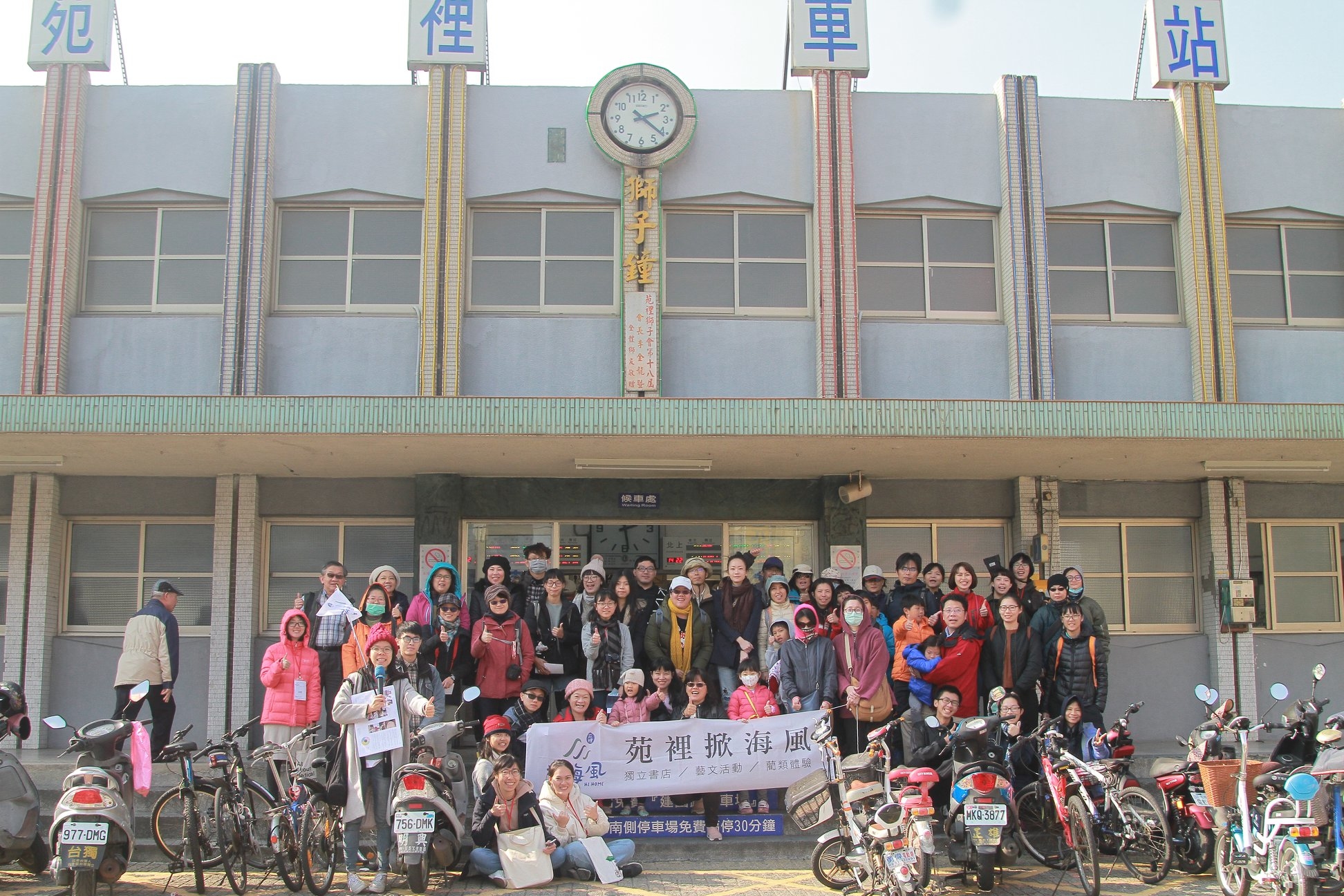
Organizing exploration tour and rush weaving immersive experience (Image source: Yu-Yu Liu)
In 2018, the Hi Home team opened an independent book store—Hi Book—in Yuanli. It has since become a venue for holding quiescent exhibitions or dynamic activities to promote participation in rural public affairs and foster an interactive platform for boosting cultural identity. One of its program, the “Yuanli Yam Department” uses the profit made from yam sales to subsidize educational activities. Their creativity forms a virtuous cycle that steers consumerism to support agriculture, education and welfare organizations. For each activity, Yu-Yu Liu and her team worked hard to contribute to Yuanli and upgraded themselves. Their effort reinforced local culture and identity, and found ways for youth to engage in regional revitalization.
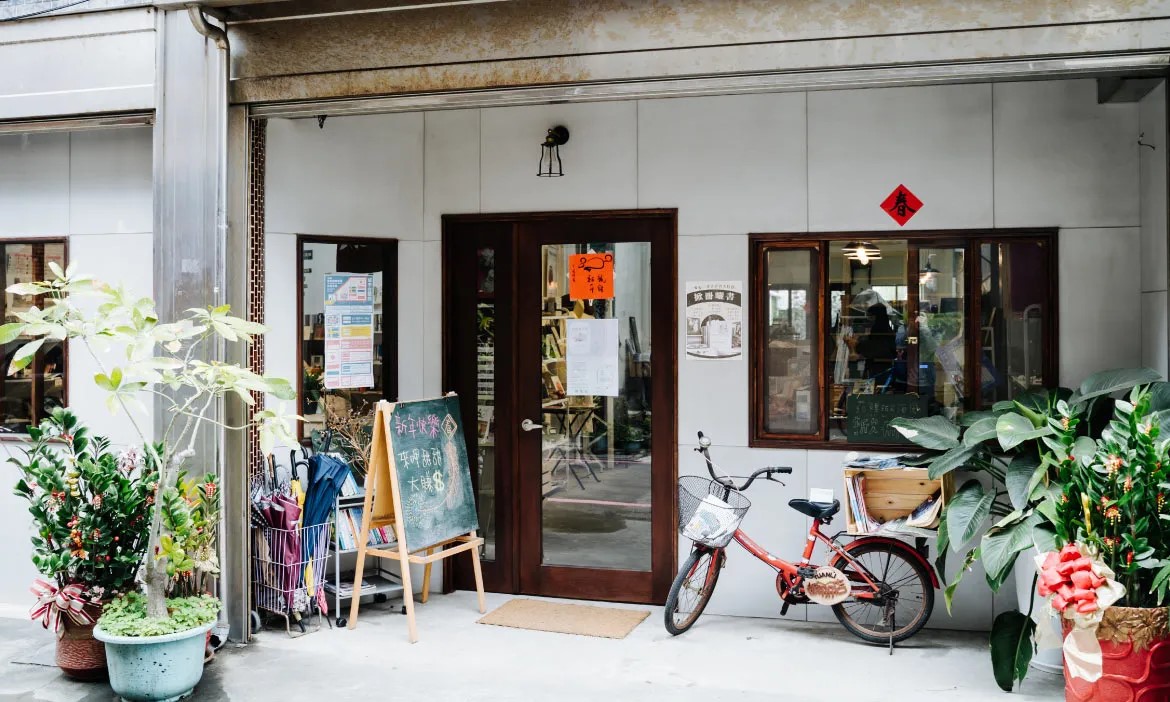
Hi Book was opened in 2018(Image source: Yu-Yu Liu)
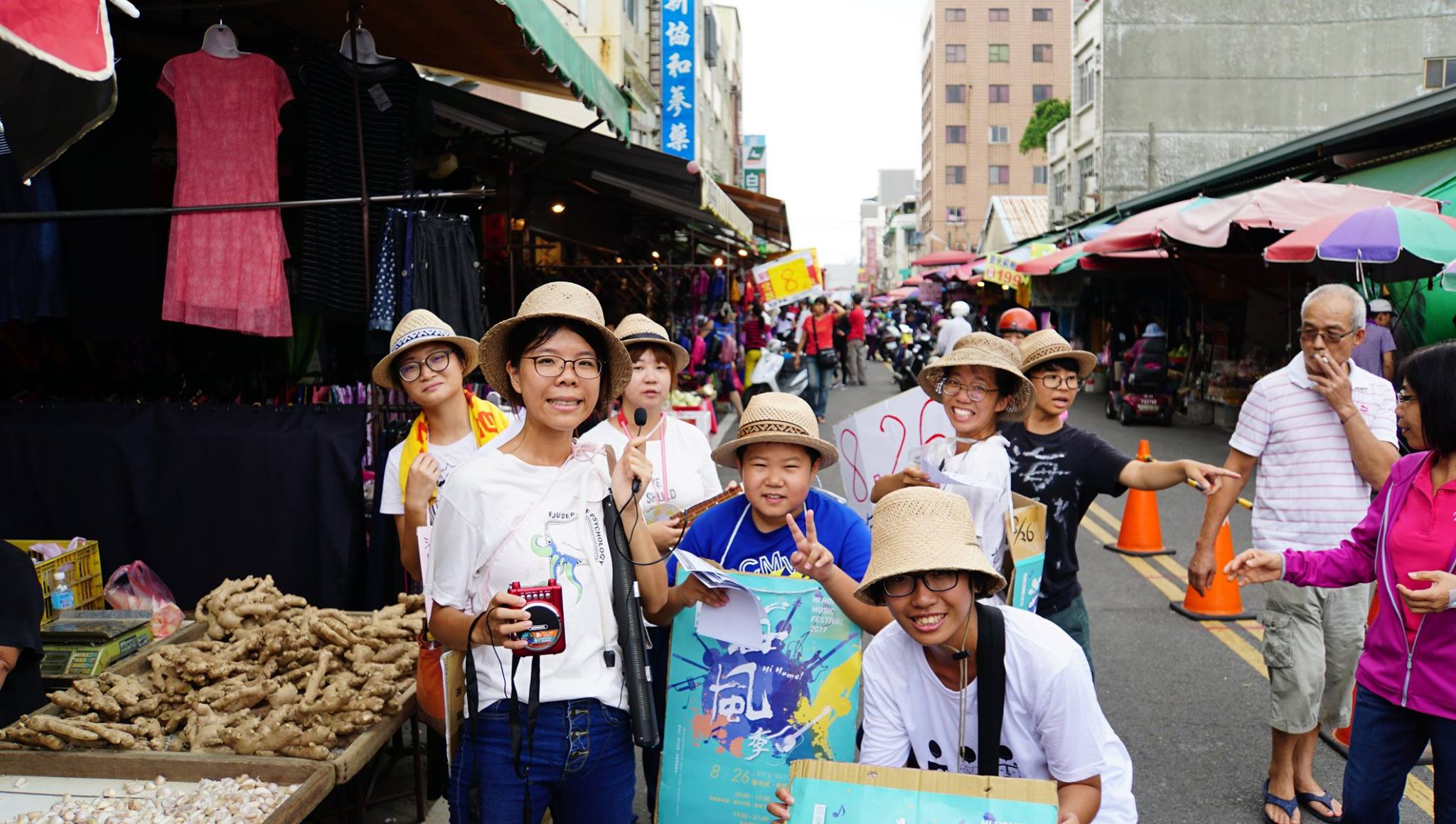
Fundraising of Hi Home Festival(Image source: Yu-Yu Liu)
Picking up mantle—Youth running for mayorship to reform Yuanli’s political atmosphere
Yu-Yu Liu mentioned that even after she left the team for mayorship, her co-founder continues to lead young associates to operate their book store and contribute to Yuanli. “‘Hi Home’ has the potential to make more co-optative connection and development efforts. This is a kind of civil force that is more mobile and expeditious, as opposed to government agencies. I think it is absolutely necessary for civil organizations and government agencies to consistently work together. Such collaboration will be able to lift rural areas to a better place.”
With ample experience in community building in rural areas, when Liu ran for mayorship in 2022, she and many residents who shared her beliefs formed the “No-favor Coalition,” which eventually contributed to the passing of mantle to a younger generation in the 19th mayor election in Yuanli Township. She explained that after getting elected as an amateur and armed only with community building experience, she felt like a fish out of water. She spent her early days on merely learning and finding out how to work with the system and administrative mechanism in Yuanli.
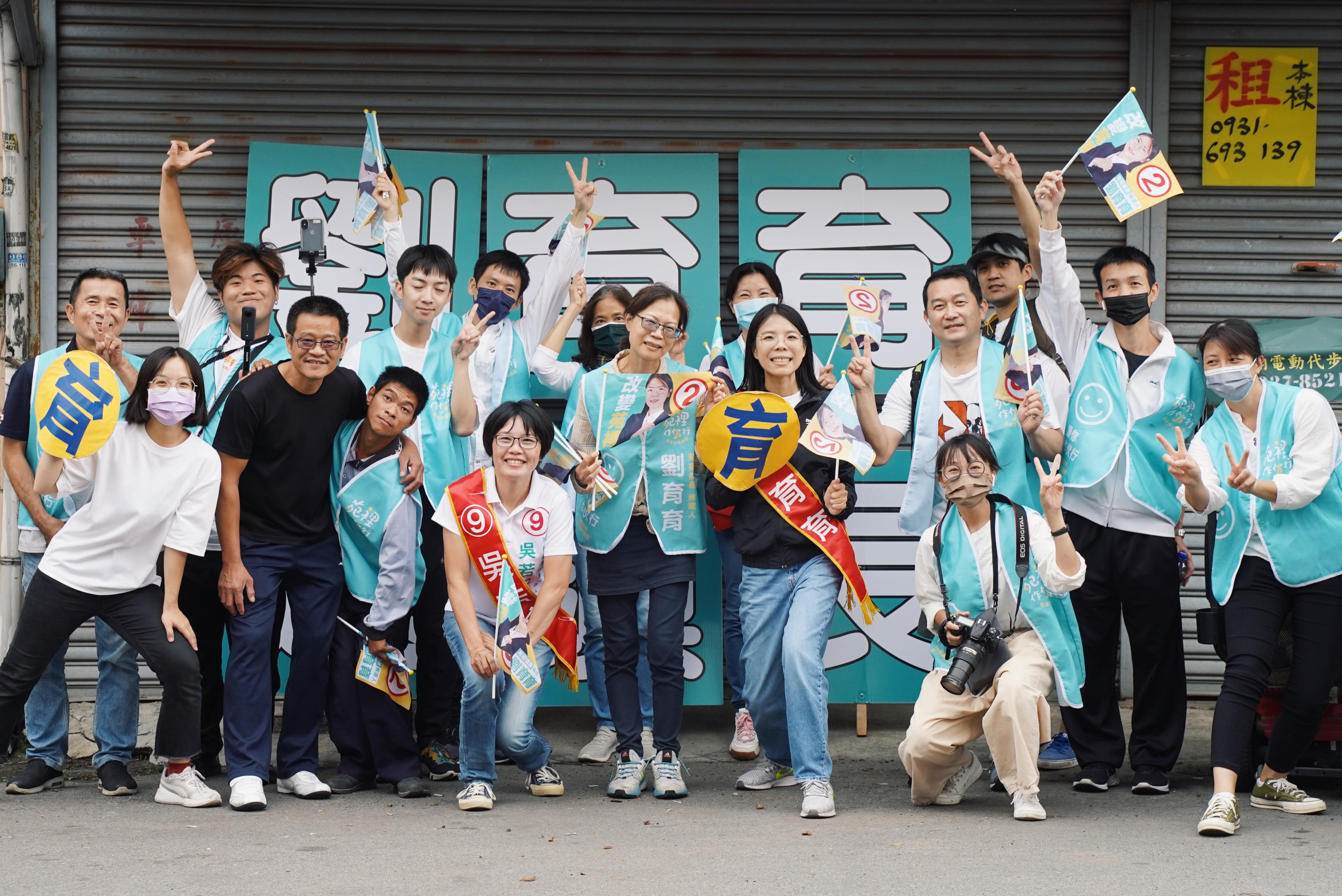
Elected as mayor of Yuanli in 2022(Image source: Yu-Yu Liu)
Developing “community-building administration” in town hall
The first thing Liu did when she became the mayor was developing a “community-building administration.” In workshop style, she invited colleagues from different departments to forget their ranks and talk about their likes and dislikes at work. Eventually, she had the keywords of an ideal town hall put on a wall: kindness, harmony, service, etc. Apart from learning their discouragement and satisfaction, she was able to find the way to make progress. The town hall was also a community that was in need of a new mood. After all, “only when our colleagues can empathize and understand the value of my governance, and when the actions of all are in line with the visions and decisions of supervisors and the chief administrator, can the people have a sense of coherence.”
Emphasis on civil participation, empowerment of civil groups
The high transparency of Liu’s governance is also evident in her rural actions. Within three months after taking office, she has visited over 20 villages. In the week this interview was conducted, she was finishing the visit to all 25 villages. Yuanli Township is one of few places in Miaoli County where the Fujian ethnic group is larger than the Hakka ethnic group. Liu would bring a copy of her work report to brief her constituents in the Taiwanese dialect. Using photos and simple language, she introduces different departments of the town hall so that her constituents can take the opportunity to get to know how each department operates and the system they have. “For the constituents, they often deem the problems they encounter in life as one big issue. But different departments would categorize and handle them separately.”
As the mayor, Liu talks to her constituents in person to shorten their distance. She would also be candid about her worries at times. She believes that a mayor and her constituents can communicate on more equal ground. “It is very much like community building. It does not require a strong man to lead the development. On the contrary, initiatives and public awareness of residents are way more important. Imparting knowledge on the scope and limitations of town hall services to residents is also part of civil education.”
Meanwhile, Liu also rolled out the “Meet the Mayor” sessions as a way of communication. She would invite concerned constituents to discuss public issues of their interests. In the next session, each constituent would bring a friend that is not within the fourth degree of kinship to join in, thus expanding the social group. “How can we come to consensus on public participation, public issues, cultural identity, and in turn, take actions? This is similar to the core of community building. From NGOs to public office, I always do what I can to help empower social groups.”
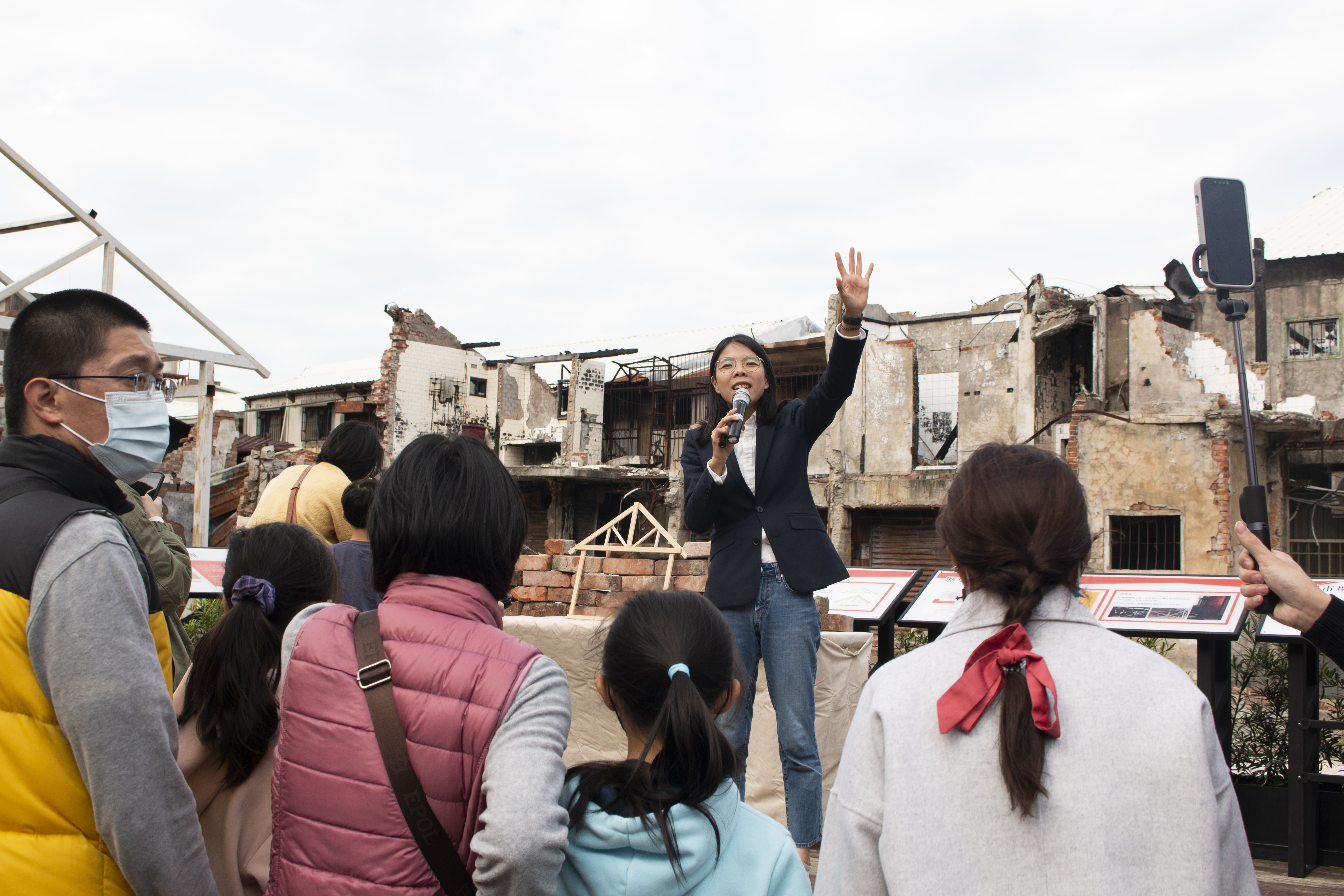
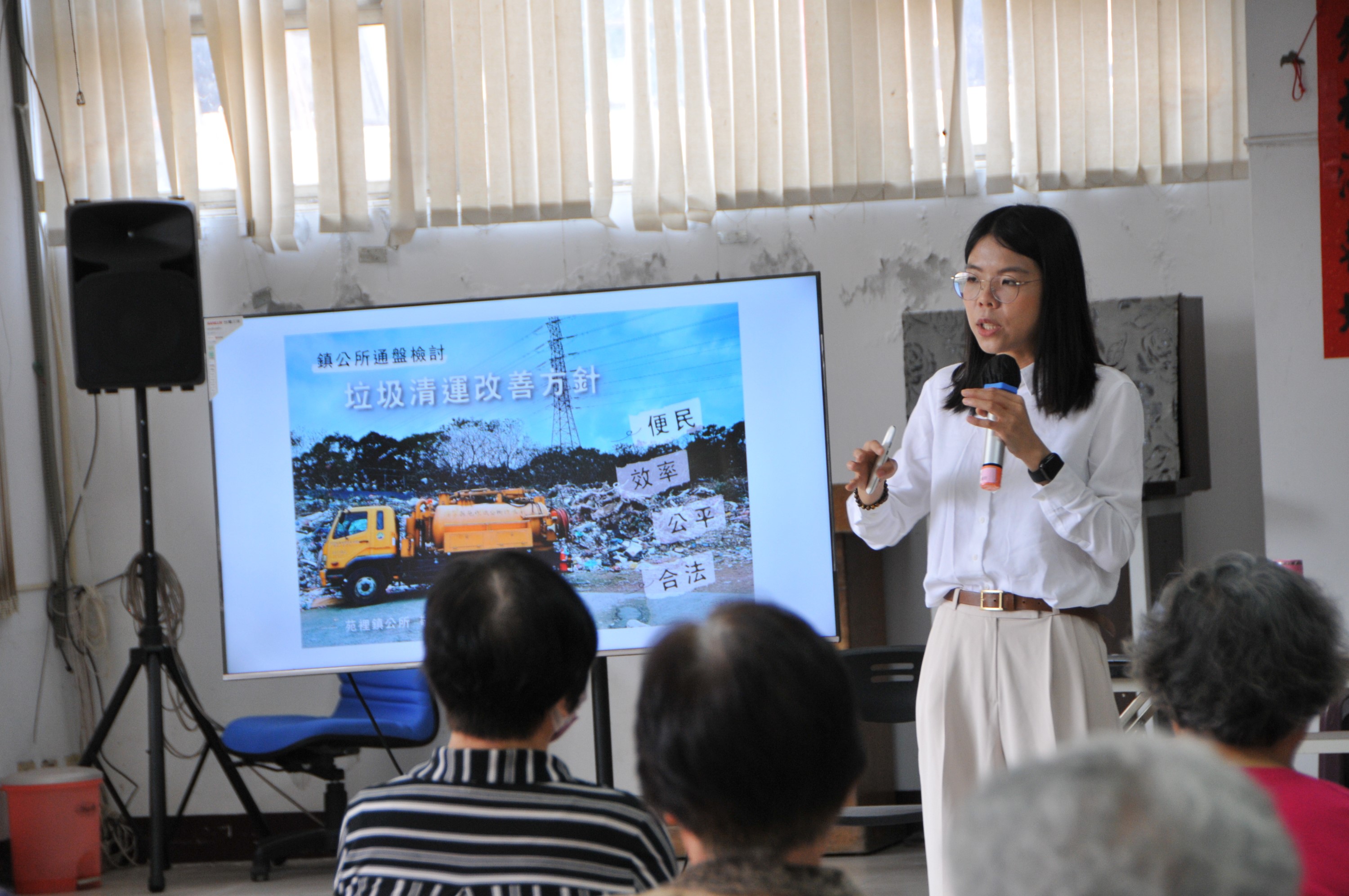
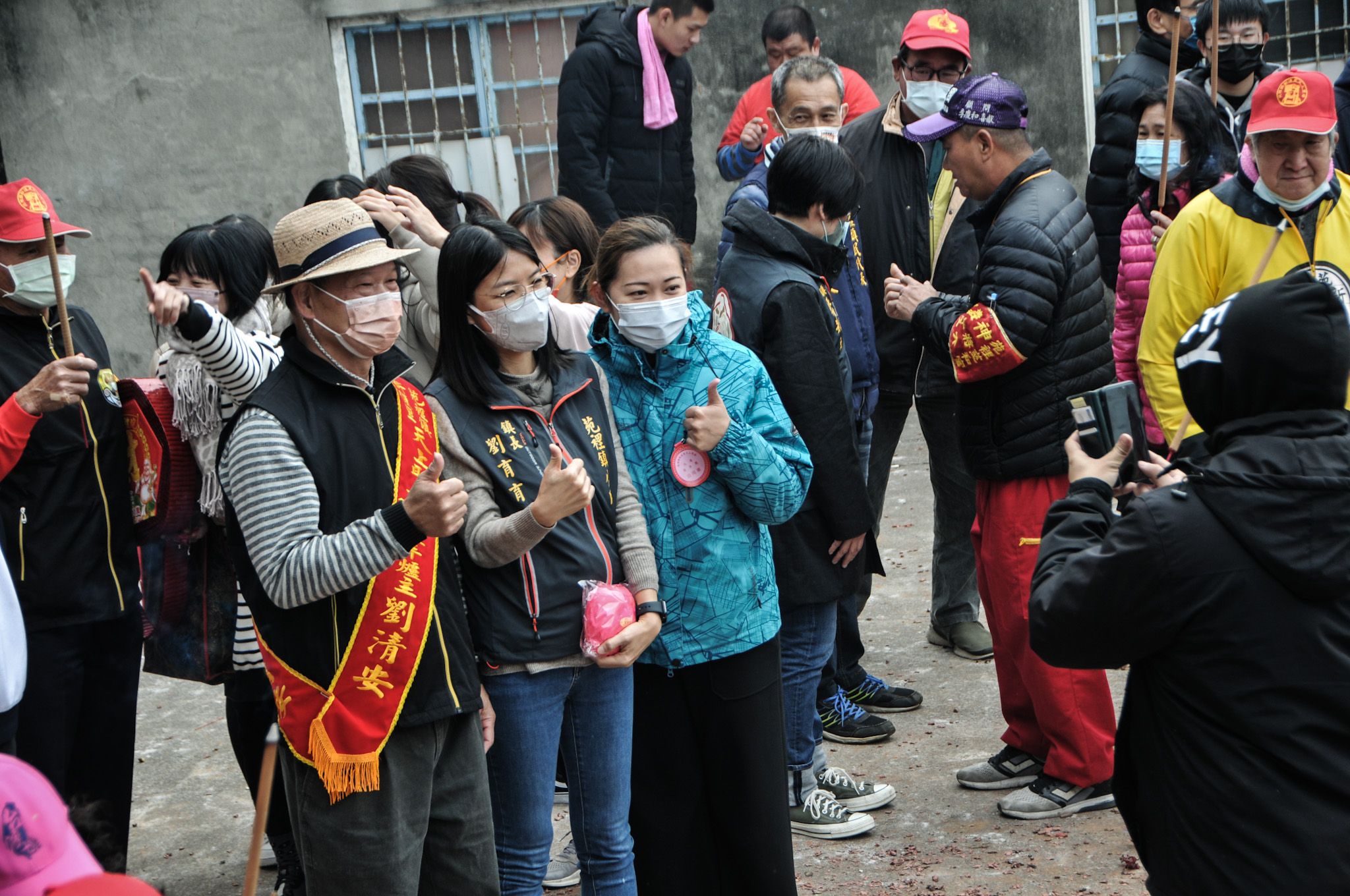
Visiting villages, and sharing and interacting with constituents(Image source: Yu-Yu Liu)
Open, transparent weekly posts
Each week, Liu would write a post, the “Mayor’s Diary,” of roughly 2000 words and put it on Facebook. She has been doing so for more than three months. Using simple and warm language, she works to clearly convey one thing each week. It is a transparent and open record that documents and shares miscellaneous plans and her thoughts for the week. She added, “many people may want more focus on governance and administrative work. We spare no effort to communicate with our constituents. We are happy to do so, that is, to guide and strengthen the discussion process. Hopefully, this can convey the idea that public affairs are not something that is remotely related to us.” Whether by online or in-person sessions, she believes each mode of communication would reach different cohorts. Her flexible way of working also largely comes from her experience in community building.
Cultivating, developing NGOs, public office collaborations
Lately, the town hall has been partnering with the community building center of Miaoli Country Government to conduct empowerment courses on writing community building proposals. Activities of community organization often lack focus on public affairs. However, Liu believes that each community organization possesses much solidarity. The town hall is able to connect the counseling mechanism, allowing the community to better understand the core values of community building. This would also be helpful for the collaborations between residents and government agencies. As mentioned, different mode of communication will reach different cohorts. Liu said, “They all focus on resolving local issues. Collaborations between residents and government agencies are imperative. The interaction allows more people to get to do what the agencies can or cannot do. With this knowledge, we will know how to collaborate.”
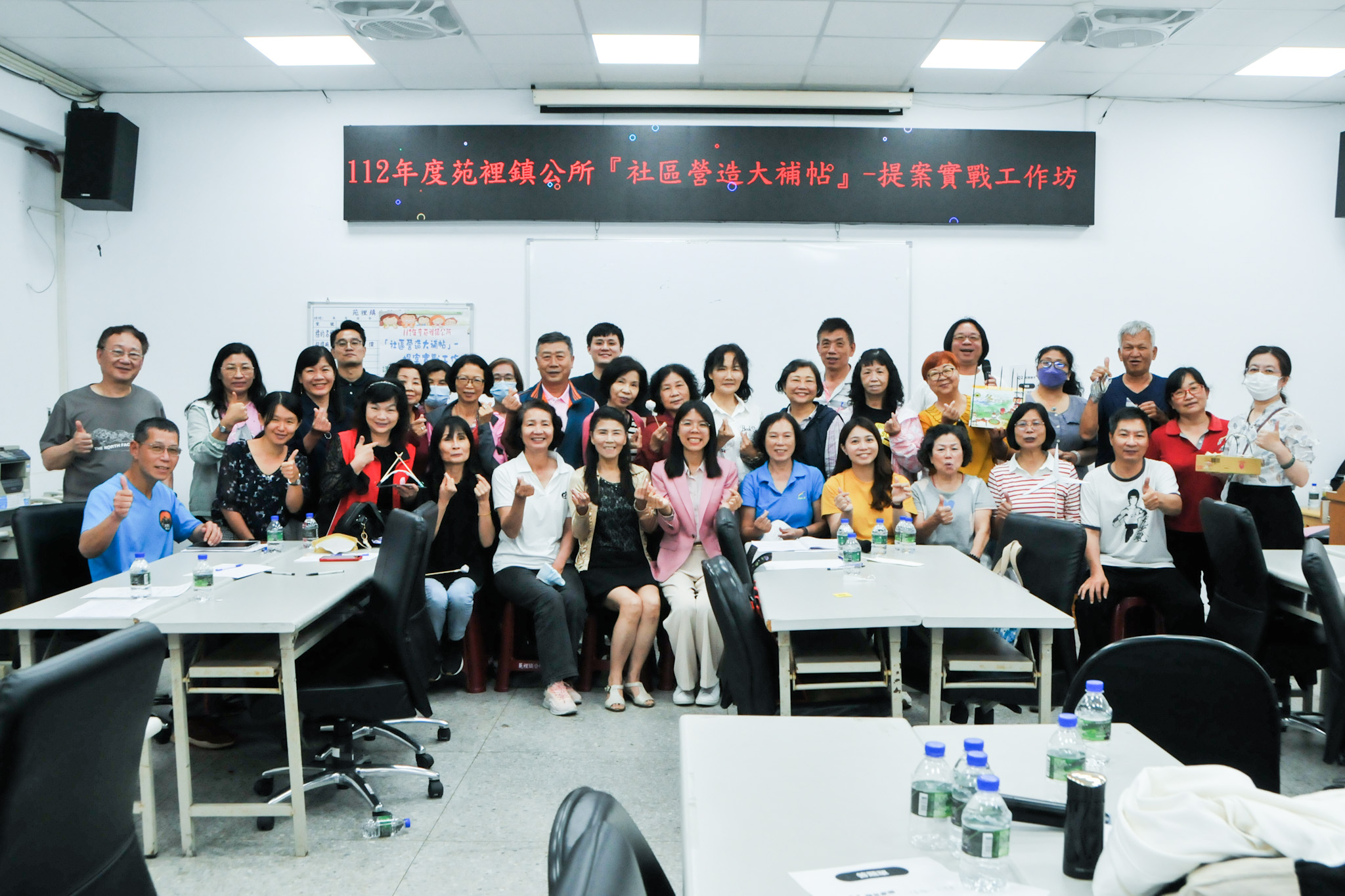
Holding “Community Building Subsidy: Proposal Writing Workshop” (Image source: Yu-Yu Liu)
Youth major growing together with constituents, sowing the seed for better democratic society
Many elderly people have attended the town hall sessions that Liu held during her visits. They have gradually come to understand the procedures that the mayor undertakes to resolve issues. “I think with empathy, it is easier to see where the public interest lies. They can then go beyond the problems that they care about. This would be a huge step!” Liu knows that like the elderly people, she is learning and growing through taking actions. She believes the change and development that her relationship with constituents undergoes are encouraging. Whether it is community building or mayorship, Liu seeks to foster a virtuous cycle in the process of practicing democracy. In taking actions, she has sown the seed for a better democratic society.
Biography of Yu-Yu Liu: In 2014, Yu-Yu Liu co-founded “Yuanli Say Hi Home” with Shiou-Fan Lin. She promoted rush weaving, conducted field research for the rush industry, published the Hi Home Brochure, opened an independent book store—Hi Book, and promoted registration and preservation of late musician, Chih-Yuan Kuo’s artifacts. She also spearheaded the Hi Home Festival. In 2022, she was elected the Mayor of Yuanli Township, Miaoli County and continues to promote public affairs thereof.
(Interview Editor: Ling-Ying Huang)
Reviewed by: Yu-Yu Liu
Authorization in this article:CC3.0 BY-NC-SA
|
|
|
 |











